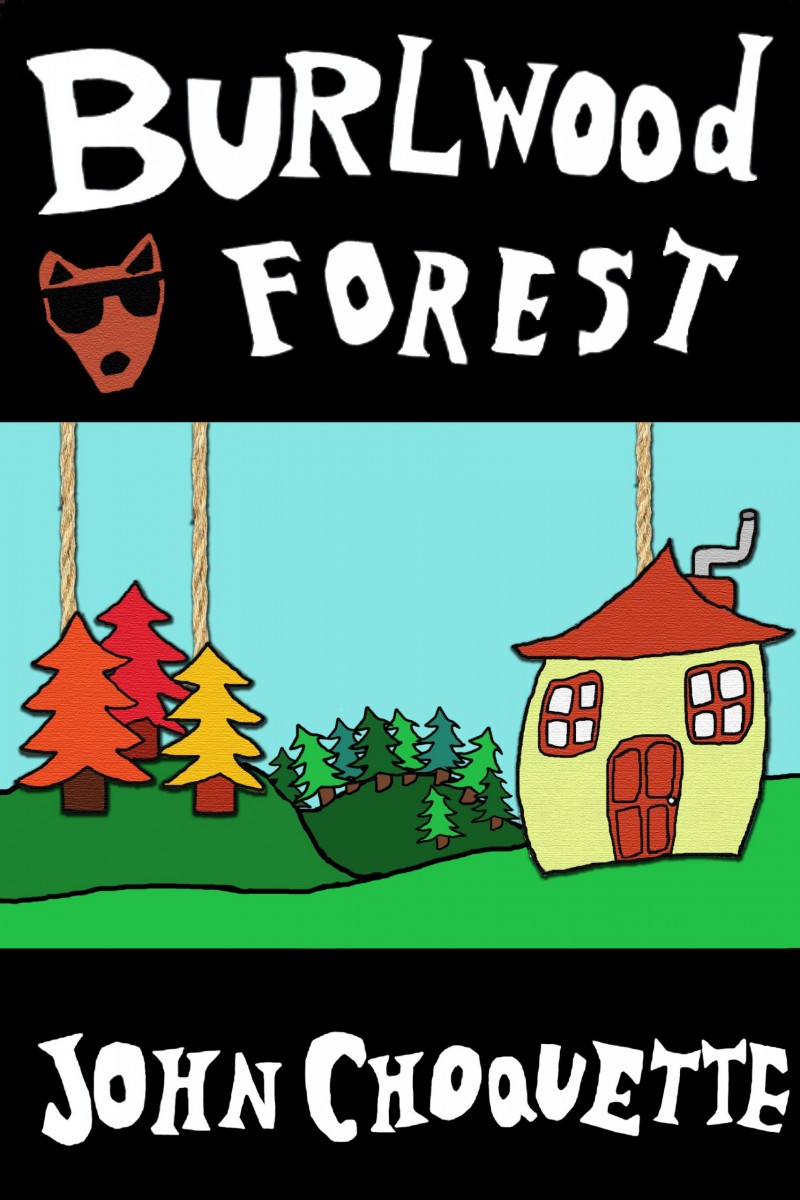Alumni Today: Author expresses his inner 11-year-old for adventure trilogy
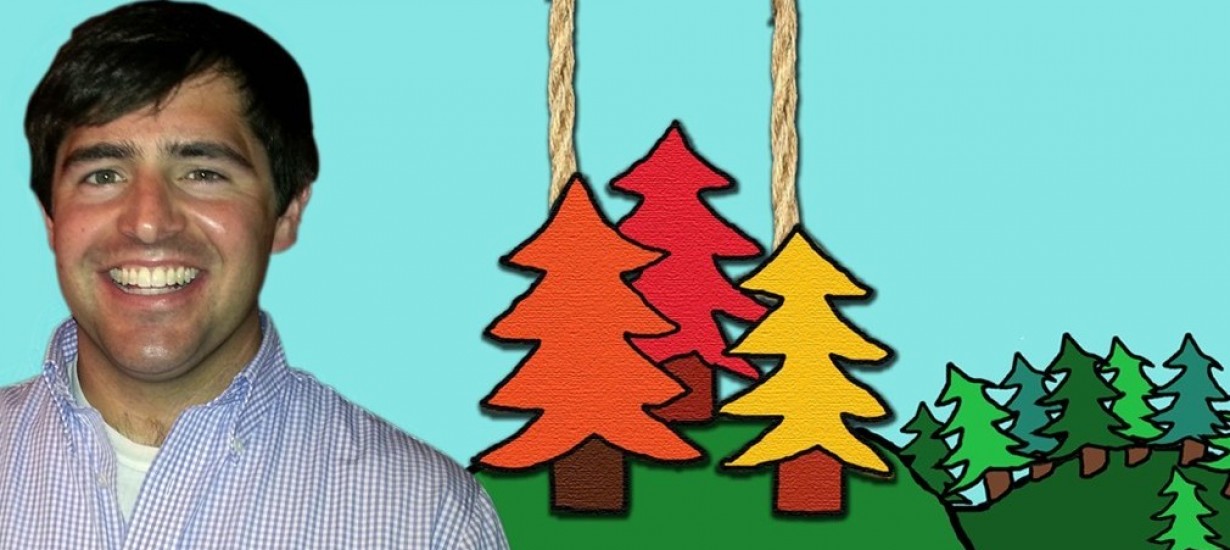
John Choquette ’10 loves to write, but he knows that making it as a published writer involves a lot more than stringing words together. He also has to get the word out.
In the past two years since he released the first book in a trilogy, Burlwood Forest, Choquette has been busy attending book events and trying to spread the word just about any way he can. And he’s already thinking of ways his series aimed at elementary and middle school readers (and their families) could be merchandised.
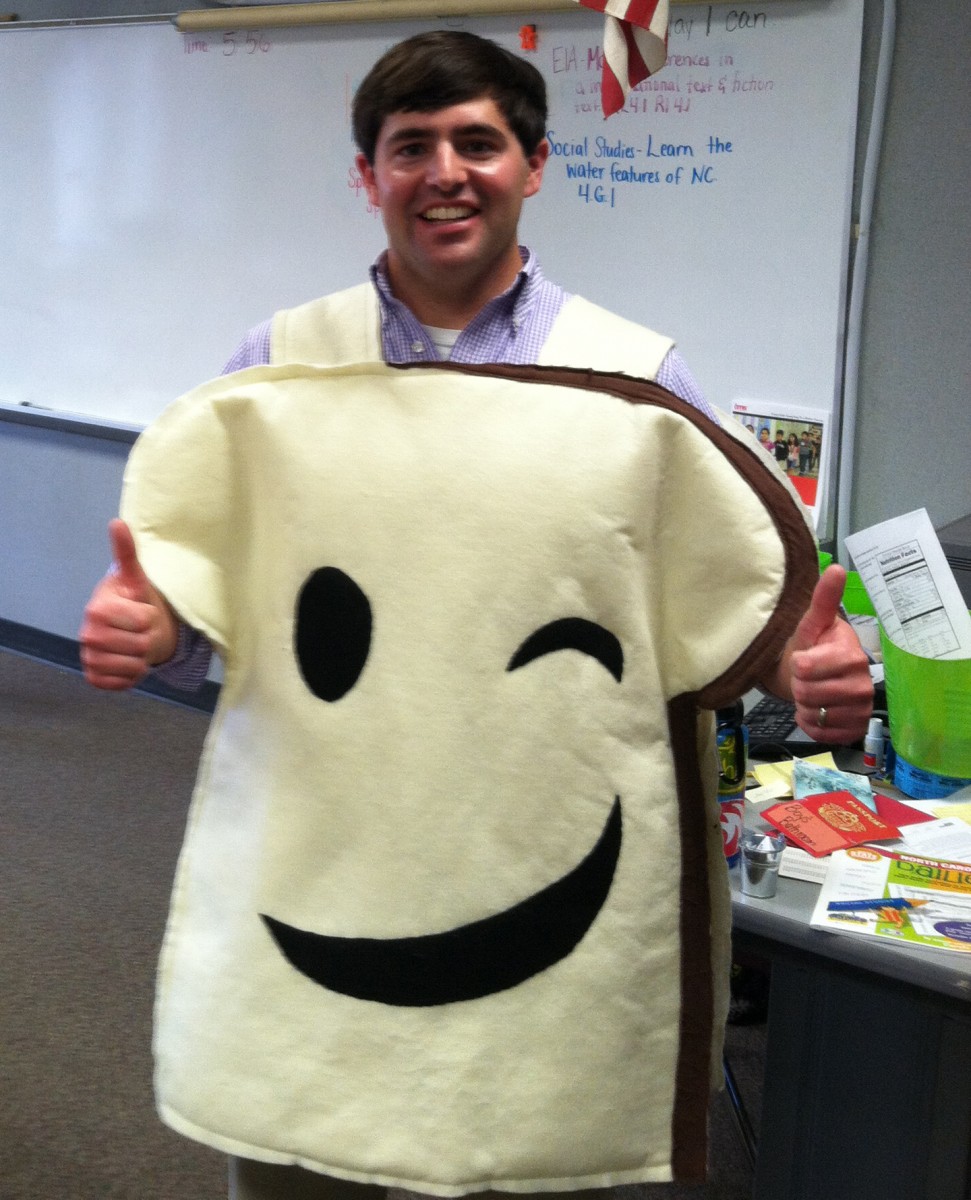
Choquette dresses in his Pumpernickel Art logo costume at author events and school visits to promote his books.
Self-promotion is all part of the business of being a self-published author, even if it means dressing up as a giant slice of bread, the signature image of the company he created to oversee his publishing adventure, Pumpernickel Art.
Burlwood Forest introduced 11-year-old hero Michael Pumpernickel, who battles an evil fox hungry for world domination.
“People who know me say that when I was 11, I was that character,” Choquette, 27, said of Pumpernickel, who is not a typical hero. He’s awkward and carries a fanny pack, and no one comes to his birthday party, not even his invisible friend. But he can be exuberant, and he’s undaunted in the face of the challenge that comes his way.
The book starts on Pumpernickel’s 11th birthday and ends up in an enchanted forest after he receives a mysterious letter saying that someone is looking for him. A collection of fantastical creatures and characters call the Burlwood Forest home — leaving plenty of room for fantasy that is part of what Choquette loves about children’s literature.
“Kids have that sense of wonder,” said Choquette, who gravitated toward fantasy books like the Harry Potter series as he was growing up.
Choquette, who lives in his hometown of Raleigh with this wife, Anna Robertson Choquette ’10, said his love of writing led him to UNC’s School of Media and Journalism, where he studied public relations. He found work in sports team sales, with the Durham Bulls minor league baseball team and then the Carolina RailHawks minor league soccer team in Cary, both of which rely heavily on marketing to maintain strong support from local fans. That work might seem a long way from writing, but Choquette says the sales experience helped build his business sense, important since he is running his own business for his books.
The book series also gives Choquette an outlet for another side of his creativity; besides writing the story, Choquette produces art for the books and the real-world marketing.
“It’s been fun to be there at every step and learn about the process,” he said. However, all the different steps of self-publishing — marketing, appearances, learning copyright law — have left little time to write. So it’s a good thing he completed all three of the trilogy’s volumes before he published the first. He’d been working on them since starting his first manuscript between his junior and senior years at UNC.
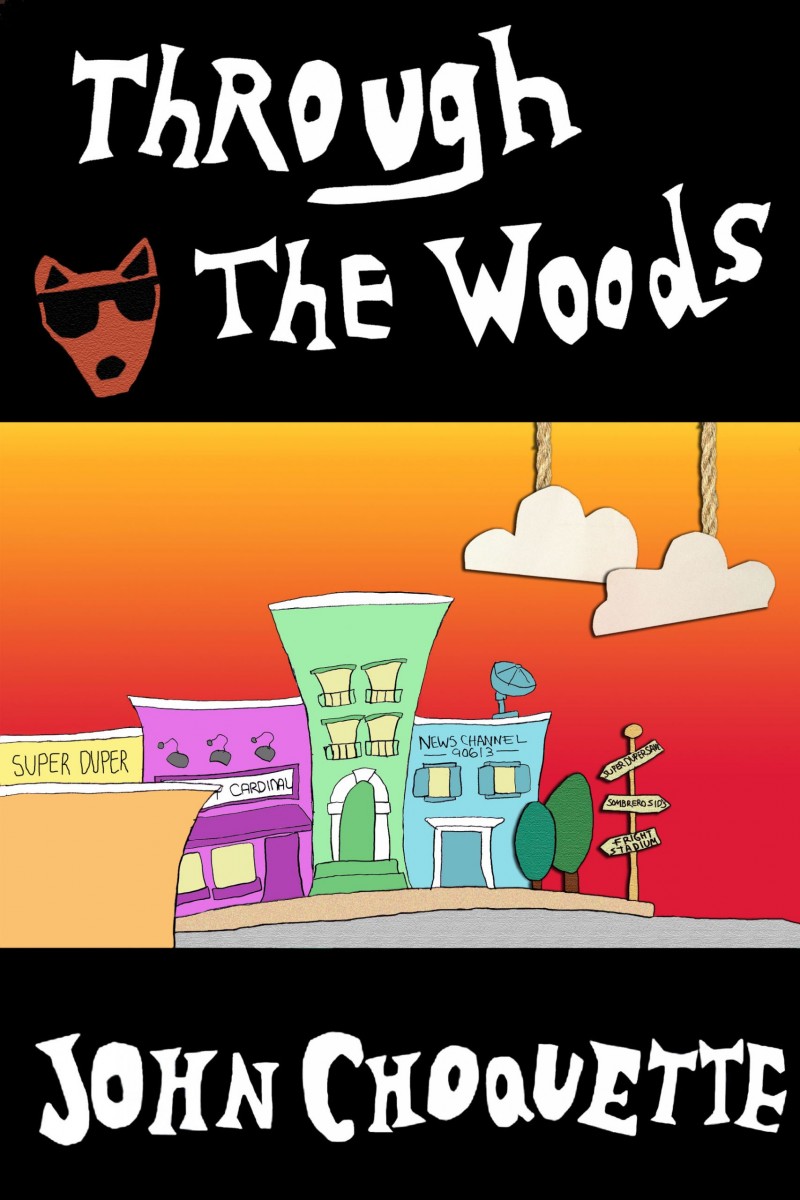
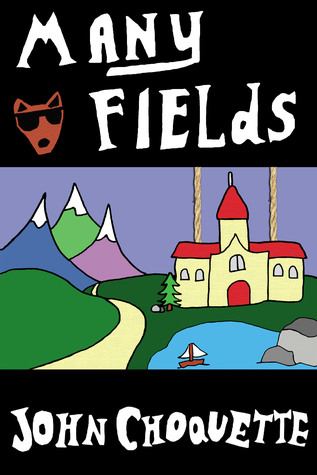 Choquette released the second in the series, Through the Woods, in November 2015 and the third book, Many Fields, in November 2016. He still might go the traditional publishing route if he can find any takers.
Choquette released the second in the series, Through the Woods, in November 2015 and the third book, Many Fields, in November 2016. He still might go the traditional publishing route if he can find any takers.
Q&A
Choquette exhibits the exuberance he channels through his Burlwood Forest protagonist and sometimes-sassy narrator in this edited email interview after he published the second book in the trilogy, touching on the relationship between author and character, reading aloud, friendship, real heroes and the importance of mystery.
 How much of Michael Pumpernickel is John Choquette?
How much of Michael Pumpernickel is John Choquette?
Choquette: If I had to guess, I’d say that we’re basically 99 percent the same person. OK, maybe 100 percent. Starting out, I had a pretty good idea of what I wanted the story to look like and where I wanted it to go.
Then everything changed. The longer I wrote, the better I knew my characters, and nothing really fit anymore. That’s when Michael Pumpernickel came into his own and everything developed around that. I’m sure it’s not a coincidence that Michael and I are very similar. People say to write what you know, and there’s no one you know better than yourself!
 Is this a book meant to be read by children on their own or is it a book to be read together with a parent, sibling or some other person?
Is this a book meant to be read by children on their own or is it a book to be read together with a parent, sibling or some other person?
Choquette: When you write a book, it’s a pretty long process. One of the things that you HAVE to do is read it aloud. That’s the best way to find out if a sentence is awkward or the pacing in a scene doesn’t work. As I did that with Burlwood Forest, I realized JUST how captivating it can be when read aloud. It fits so well with the exaggerated tone of a storyteller.
Is it better aloud? I don’t know. I think a book is best read how the reader wants to read it. How does it sound in their head? What different qualities do they assign to the characters as they become invested in the story? I’d say that Burlwood Forest is best discovered in a different way by each person. Is that with a parent or sibling for some children? Absolutely! The sense of wonder is only magnified with someone to share it with. Is that alone for others? Sure! Some adventurers prefer to discover the world alone. I think, either way, the reader is exactly where they need to be.
 Why did you begin Burlwood Forest on Michael Pumpernickel’s birthday?
Why did you begin Burlwood Forest on Michael Pumpernickel’s birthday?
Choquette: Honestly, I wish I could say that it had to do with some sort of grand literary tradition. I mean, that would sound pretty cool, right? But no, it really didn’t. OK, so the Harry Potter series DID start with Harry’s birthday. And Lord of the Rings might have kicked off with Bilbo’s party.
But I didn’t really think about any of that until right now. I just felt like it was the best way for the reader to get to know Michael. If you think about it, turning 11 is the catalyst for EVERYTHING that happens after that. It’s the single most disappointing day in his life. Something HAS to change. And it does, although I won’t spoil anything here.
 Michael seems like a lonely kid in the beginning of the book. What does he (and, in turn, the reader) learn about friendship and relationships?
Michael seems like a lonely kid in the beginning of the book. What does he (and, in turn, the reader) learn about friendship and relationships?
Choquette: Everyone has something to offer. That’s really one of the biggest themes of Burlwood Forest. As the story goes on, you see that even the unlikeable characters can be loved. They all have their motivations. Once you learn what they are, you see that bad guys aren’t usually bad for no reason. Being a villain is often just as lonely as being a hero. Who would want that?
 I’m such a huge fan of books with deep, multilayered characters. Sure, the situations are goofy, and the plot isn’t always believable, but I think Burlwood Forest is that type of book. It’s entirely possible for every character to be someone’s favorite and for completely different reasons.
I’m such a huge fan of books with deep, multilayered characters. Sure, the situations are goofy, and the plot isn’t always believable, but I think Burlwood Forest is that type of book. It’s entirely possible for every character to be someone’s favorite and for completely different reasons.
 Hero is a term tossed around a lot these days. How is Michael Pumpernickel a hero? What do you think it means to be a hero?
Hero is a term tossed around a lot these days. How is Michael Pumpernickel a hero? What do you think it means to be a hero?
Choquette: We really do live in the age of the superhero. With the success of the Marvel film universe, as a society we’re constantly bombarded with images of who to look up to. We see these amazing men and women with superpowers taking on the bad guys of the world. The rest of us? We’re the ones that need to be saved.
I’ve never really looked at it that way. A hero to me is someone who makes a difference in everyday life. It’s the guy who takes time to help someone who’s stranded on the side of the road. It’s the single mother who works three jobs but finds a way to help her children with their homework. Heroes may not look remarkable on the outside. They don’t have catchy names, they don’t wear capes, and they certainly don’t wear tights.
They’re people like Michael Pumpernickel. Their contributions are often overlooked or taken for granted. They may not even be exceptionally talented in a way that society values. But the moment they’re missing, we’re all in trouble. Michael truly embodies that spirit. He doesn’t seek to do the right thing for himself, he does it for others. THAT is a hero.
 How is Michael Pumpernickel different in Through the Woods than when we met him in Burlwood Forest? Is he better equipped to be a hero from the start or does he still have a steep learning curve ahead of him?
How is Michael Pumpernickel different in Through the Woods than when we met him in Burlwood Forest? Is he better equipped to be a hero from the start or does he still have a steep learning curve ahead of him?
Choquette: The more I write, the more I realize that Michael Pumpernickel will ALWAYS be Michael Pumpernickel. No matter how old he gets, or what he experiences, he’ll always be goofy, a little dopey, but awkwardly lovable. I think that goes back to the fact that he is based a lot on my own experiences. Writing this story has changed my life, but it hasn’t fundamentally changed who I am. Michael is the same way in the story.
In Through the Woods, and really at the end of Burlwood Forest, you can see him be more sure of himself. The world is crashing down around him, yet he doesn’t have that sense of panic that he does at the beginning. He also seems to be more of a leader. There’s a moment in book two where he accepts his fate. He doesn’t run from it. That never would have happened before. All that is to say, he still has a long way to go.
The best characters in literature are like real people. They DO change over time, and they’re not one-dimensional. I like to think that Michael Pumpernickel has many parts to him, just that some of them never truly go away!
 The narrator has a very tight relationship with the readers, letting them in on the big picture, sharing reactions to the action, almost like an actor breaking the fourth wall on a stage play. Why did you employ that style of narrative voice?
The narrator has a very tight relationship with the readers, letting them in on the big picture, sharing reactions to the action, almost like an actor breaking the fourth wall on a stage play. Why did you employ that style of narrative voice?
Choquette: One of my favorite books growing up, and really, to this day, is Winnie the Pooh. Every time I read it, I’m just amazed at how different it is. Sure, we all know the characters and stories by now, but the way Pooh interacts with his surroundings is so unique in the world of literature. I wanted to have a strong narrator because I thought it would provide me with an opportunity like that.
The Historian, as he likes to be called, serves two main purposes in the book — to inform the reader and to provide comic relief. The way that the narrator interacts with Michael shows that this isn’t an ordinary story, but also that the person telling it to you isn’t an outsider. He’s just as much a part of Burlwood Forest as anyone else.
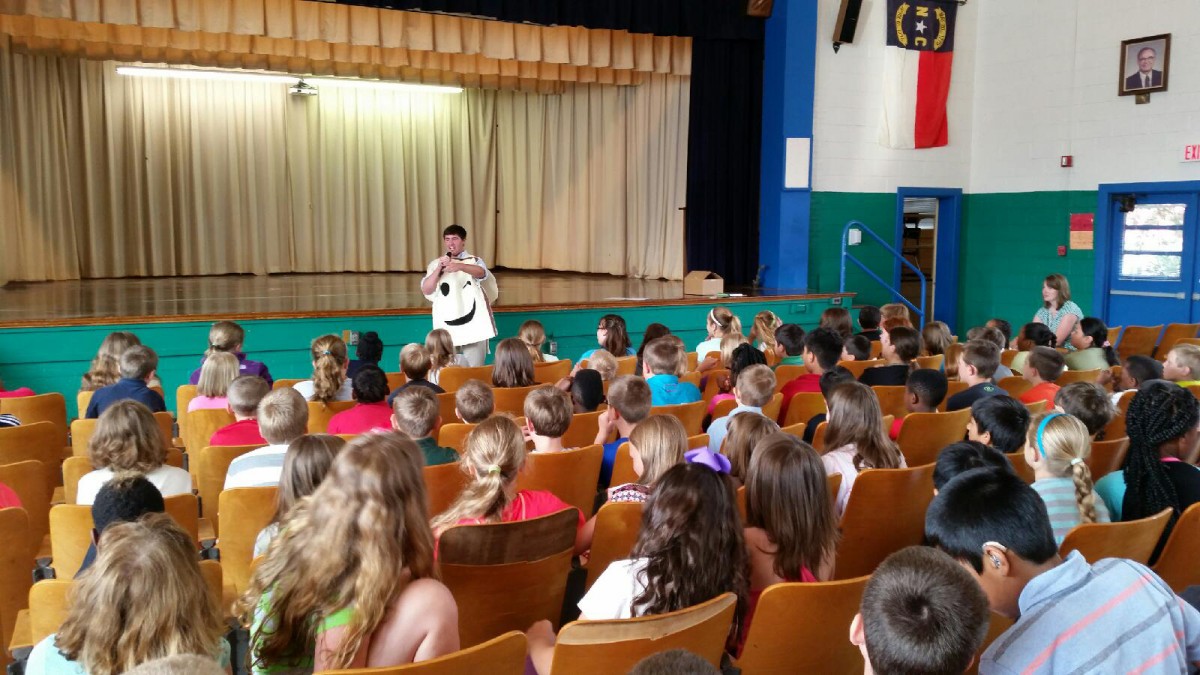
Choquette speaks to students during a visit to an elementary school.
 When you do the author appearances at schools and other places, what reactions have you been getting from kids? Are they interpreting the story and understanding the characters the way you thought they would?
When you do the author appearances at schools and other places, what reactions have you been getting from kids? Are they interpreting the story and understanding the characters the way you thought they would?
Choquette: It’s been amazing! I’ve had the opportunity to do almost 25 appearances this year, and I can’t say enough about the experience. All of the people I’ve met have been so supportive, not just of me and what I’m trying to do, but of the story itself. I set out on this journey to help get kids excited about reading again, and every indication I’ve gotten is really encouraging.
Burlwood Forest isn’t a typical book, and I think it’s that aspect that helps kids relate to it. All of the conversations I’ve had, while entirely different, lead me to believe that my audience gets what I’m trying to do. Honestly, I don’t feel like I can take any of the credit, though. I’ve had such amazing partners at some of the local schools, as well as at library systems across the Southeast. Without the help I’ve received, I don’t think my message would be as strong.
 Michael Pumpernickel is set upon his adventure by a mysterious letter. How important is adventure and mystery to a good book? Do we have enough of adventure and mystery in real life today, when it seems everything can be Googled and shared around the world on social media?
Michael Pumpernickel is set upon his adventure by a mysterious letter. How important is adventure and mystery to a good book? Do we have enough of adventure and mystery in real life today, when it seems everything can be Googled and shared around the world on social media?
Choquette: There’s nothing better than the thrill of getting a letter! For some reason, it’s so mysterious when that little red flag on the mailbox goes up. Who sent the letter? What does it say? That’s why it’s the perfect way to begin a story. When you receive a letter, the possibilities are endless. ANYTHING can happen!
With social media, we know everything that everybody is doing all the time. Where is the fun in that? Do we really want to know? Do we NEED to know? Life is so much richer when there is a sense of mystery. So many problems in books could be solved by a simple phone call, but what if the characters don’t have a phone? What if they can’t find each other because no one updated their status? We can’t even imagine what to do! It’s unthinkable! That makes it exciting.
Books are such an interesting way to look at the world. They put people in situations that they could NEVER dream of, and then they leave them there to see what happens next!
Story by Beth Hatcher ’02; Q&A by Carolina Alumni Review Associate Editor Keith King ’82; audio production by Susan Simone; all art courtesy of Pumpernickel Art.
